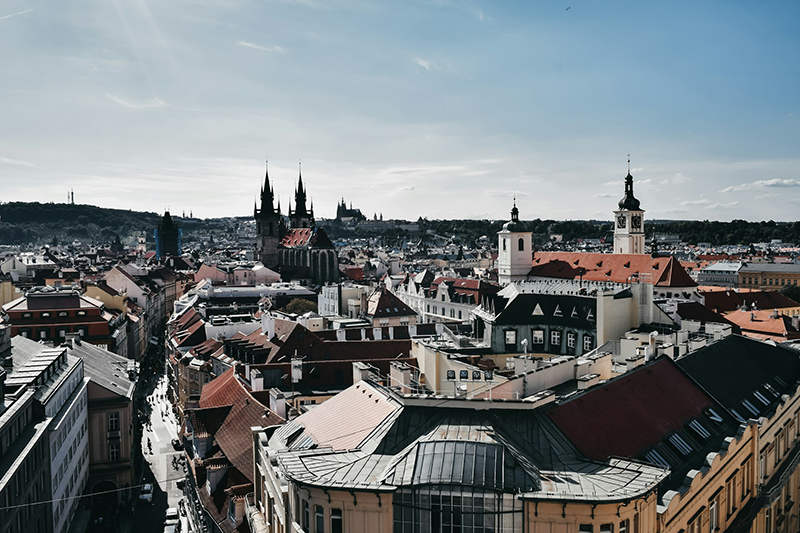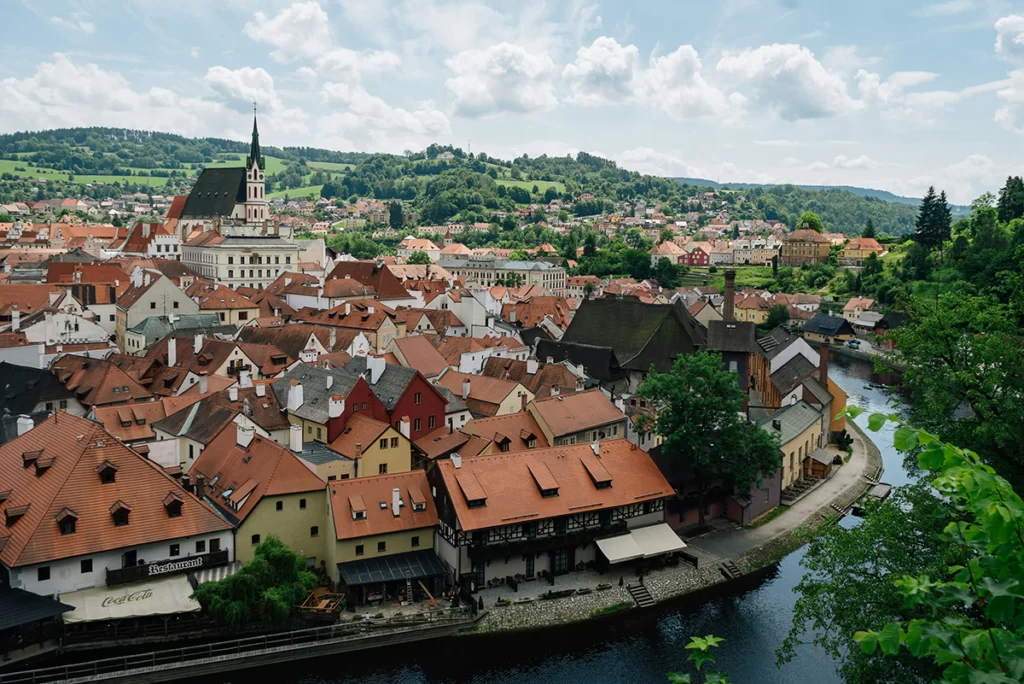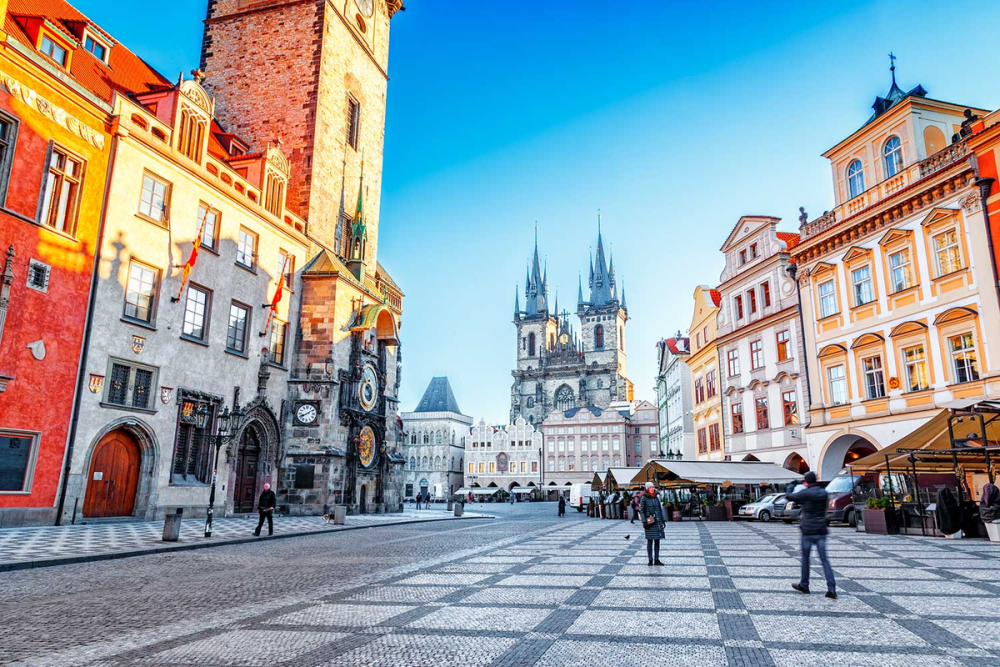Czech property beckons investors from all over the world. Why? A stable economy, historic cities and a growing tourist flow make the country a real gem for those who want to invest wisely. But what property in the Czech Republic should you invest in to get the best value? Let’s dive into the details and explore the options in the article.

Which residential property in the Czech Republic to invest in: flats and houses
Czech residential properties have long been popular with investors. Flats in Prague and Brno continue to be leaders in attractiveness, and for good reason. With prices ranging from CZK 120,000 to CZK 160,000 per square metre, they offer steady price growth and high rental demand, especially in the capital.
Investing in flats in the Czech Republic
Why are flats the best choice for beginners and experienced investors? They provide a stable income, because Prague and Brno are the largest educational and cultural centres in the country. Buying property for rent in the Czech Republic is a strategic decision, especially in areas near universities and office blocks. Investing in flats for short-term rent can bring up to 5-6% annual income, which exceeds the figures of most European countries.
Step-by-step actions:
- Selection of neighbourhood based on investment objectives.
- Verification of documents and legal cleanliness of the object.
- Taking out a mortgage or other financial instruments for the purchase.
- Signing of the sale and purchase agreement and registration of the property.
Houses for long-term investments
Investing in houses is a great way to invest capital if there is a desire to own an asset for a long time. Properties in the suburbs, such as Prague West or Prague East, offer a value significantly lower than in the centre, but the potential for growth at the level of the city. For example, property values in areas such as Ržičany or Beroun are around CZK 80,000 per square metre, and continue to rise as Prague expands. Property in the Czech Republic worth investing in for investment in these suburbs is particularly relevant for those planning a long-term financial relationship.
Advantages of houses in the suburbs:
- Ecological purity, fresh air and proximity to nature.
- Lower taxes compared to city properties.
- A higher level of security and comfort for family life.
Promising areas
The areas with the highest potential are Prague, Brno and Karlovy Vary. Prague offers a wide range of rental and resale opportunities, especially in central areas such as Vinohrady or Smichov. Brno, the second most important city in the Czech Republic, actively attracts students and IT specialists, making it ideal for renting. Promising areas for investment in the Czech Republic also include Karlovy Vary, known for its resorts and high demand for recreational facilities.
Which commercial property in the Czech Republic to invest in: offices and retail
 Commercial square metres offer a wide range of investment opportunities, from office space in the centre of Prague to retail space in dynamic areas. Investments in commercial properties are capable of generating stable income over a long period of time, while offering some protection against inflation.
Commercial square metres offer a wide range of investment opportunities, from office space in the centre of Prague to retail space in dynamic areas. Investments in commercial properties are capable of generating stable income over a long period of time, while offering some protection against inflation.
Office space in Prague
Prague is the centre of business activity in the Czech Republic. Offices here are in high demand due to the presence of large international companies. The average rental rate per square metre is around CZK 350-500 per month, which attracts investors with the possibility of long-term profitability. Which Czech property to invest in in Prague is a question that often arises for those looking for a stable income, and office space in the central districts provides a clear answer.
Key Selection Factors:
- Location, proximity to the city centre.
- Transport accessibility, availability of public transport.
- Availability of car parking for employees and customers.
Investments in retail space
Commercial areas remain an attractive choice for those seeking stability and high returns. Especially interesting are areas in the central districts of Prague and Brno, where the high tourist flow and active residents ensure a steady demand for rentals. Shopping centre rental business in the Czech Republic can generate up to 8% annual income, making it one of the most profitable types of rental business.
Types of commercial property for investment in the Czech Republic
Commercial property is diverse – office buildings, retail space, warehouses. Each of the areas has its own specifics and target audience. Office premises are of interest to business corporations, while retail premises are suitable for retail trade. Warehouses are actively developing in the regions of Plzeň, Ostrava and offer yields of about 6-7% per annum.
Which recreational property in the Czech Republic to invest in: investment in holiday properties
Investing in recreational property is an ideal way to combine a holiday with a profitable investment. The Czech Republic is famous for the spa towns of Karlovy Vary and Mariánské Lázně, which attract tourists from all over the world.
Holiday property in Karlovy Vary
It is the capital of Czech holiday resorts, which attracts thousands of tourists every year. Investing in Czech property in this region guarantees high rental demand, especially in the segment of short-term rental properties related to holidays and treatment. The average price per square metre here is around CZK 100,000, and given the attractiveness of the region, prices have every chance of further growth.
Hotels and guest houses
Investing in hotels and guest houses in the country’s resorts is an attractive option for those who are ready to manage the asset themselves or with the help of management companies. Profitable investments in the Czech Republic include the purchase of small hotels, where you can expect returns of up to 10% per annum. The management of facilities can be outsourced to professional companies, which simplifies the process of making a profit.
Important steps for successful hotel management:
- Selection of a management company capable of effectively managing the asset.
- Develop a marketing strategy to attract guests.
- Maintaining a high level of service to retain customers and improve reputation.
Seasonal houses and cottages
Seasonal houses and cottages are a popular investment option for those looking for a passive income opportunity. Such properties are of interest to tourists and renters who want to holiday in picturesque countryside.
Which specific property in the Czech Republic to invest in for a quiet income? Seasonal houses in the regions of Liberec or South Bohemia offer attractive conditions with yields of up to 5-6% per annum.

Conclusion
 Whether you are interested in residential flats, office buildings or holiday properties, the country offers many opportunities for profitable investments. Once you understand what property in the Czech Republic to invest in, you can choose the best option that can bring a stable income. Each investor will find something that suits him or her, whether it is Prague with its business centres or Karlovy Vary with its resort properties.
Whether you are interested in residential flats, office buildings or holiday properties, the country offers many opportunities for profitable investments. Once you understand what property in the Czech Republic to invest in, you can choose the best option that can bring a stable income. Each investor will find something that suits him or her, whether it is Prague with its business centres or Karlovy Vary with its resort properties.
 en
en  ru
ru  de
de  ar
ar  es
es  nl
nl  hi
hi  fr
fr  it
it  pt
pt  el
el 









